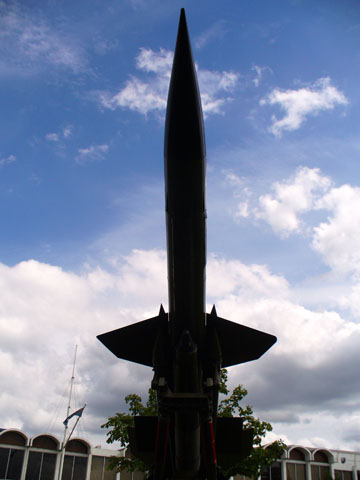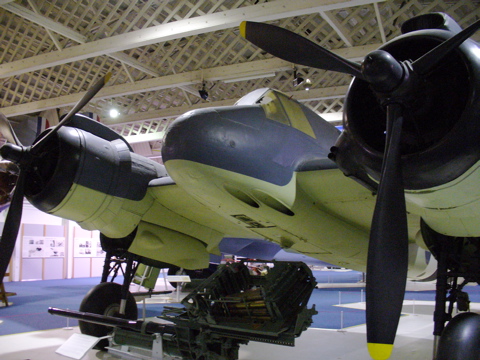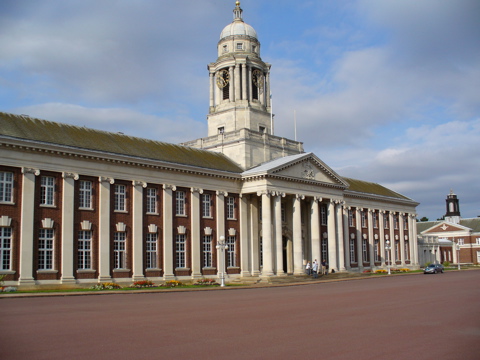In the previous post I looked at Nigel Biggar’s use of the Berlin Airlift and Richard Hillary in his paean to the RAF. Now I will look at his other argument in Providence, that ‘In the past 100 years then, the Royal Air Force has made a vital contribution to the military defense of the West’. By this he means the Battle of Britain, of course:
The early phases of the battle saw mere handfuls of fighters throw themselves against hundreds of German bombers. Without their victory, Hitler’s military would have probably overwhelmed Britain’s resistance, and America’s subsequent struggle would have been immeasurably more difficult. Fighting for Europe from England proved hazardous enough in 1944; trying to retake it from the far side of the Atlantic would have been almost impossible. Hence Winston Churchill’s famous remark, “Never in the field of human conflict was so much owed by so many to so few.”
Again, it’s easy to quibble (Fighter Command was hardly down to ‘mere handfuls’ of aircraft, for example, and whether Britain could have been successfull invaded is extremely doubtful), but I absolutely agree that the British victory was a Good Thing.
It’s more problematic when Biggar points to the RAF’s other post-1945 operations:
Since World War II, the RAF has seen active service in Korea (1950–53), the Falkland Islands (1982), the Gulf War (1990–91), Iraq (2003), Afghanistan (2001–16), and, most recently, Syria. Although its global reach is not what it was at the height of the British Empire, it still retains overseas bases in Gibraltar, Cyprus, Ascension Island in the middle of the South Atlantic, and yet further south in the Falklands. And in the past 15 years, it has been on contingency operations in no fewer than 30 countries.
It’s an odd list: why 15 years for Afghanistan but only 1, or 3 if the First Gulf War is counted, for Iraq? More importantly, despite referring to ‘the last 100 years’, it concentrates heavily on the post-Cold War period, though even then there’s no mention of Bosnia, Kosovo or Libya. Given Biggar’s interest in weighing the ethics of empire, it seems odd that he neglects to mention RAF operations in Malaya, Kenya or Egypt.
A somewhat different, but I think revealing, version of ‘Thank God for the RAF!’ is a sermon Biggar gave at Christ Church Cathedral, Oxford (where he is canon) on 7 October 2018.1 There he says that
In the past one hundred years, then, the Royal Air Force has made a vital contribution to the military defence of the West. And if we believe in the West, which even today remains more Christianised than it often knows, then, in this centenary, we should give thanks to God for the RAF’s defence of it.
So this makes it clearer that Biggar thinks ‘the West’ is worth defending to the extent that it is ‘Christianised’. That’s understandable in a sermon and a Christian magazine, but it also suggests that his post-Cold War selection of RAF operations–GWOT rather than humanitarian–is skewed towards those which he can fit into a clash of civilisations, or rather religions, framework, that is between Christianity and Islam. Again, this tells us something about Biggar’s values.
Finally, there’s a whole section in the sermon on area bombing which is not in the article, which I’ll quote in full (emphasis added):
This week the Church celebrated the life and work of George Bell, sometime Student of Christ Church and later Bishop of Chichester. Famously, in the 1930s Bell had cultivated relations with the Confessing Church in Nazi-Germany, and then in World War Two he had protested vigorously against the RAF’s carpet-bombing of German cities. That bombing has been ethically controversial ever since, with arguments ranged on both sides. My own view is that, all things considered, periods of the bombing probably were immoral, according to the canons of the Christian tradition of thinking about the justification of war. My point here is a bit complex, and I will state it slowly: that all human endeavour is prone to be marred by sin; that even when that endeavour is justified overall, as I think the war against Hitler was, it will contain elements of immorality; but that those elements need not corrupt the enterprise as a whole. So when we come to commemorate the dead of the two world wars next month, we should allow ourselves to feel shame alongside pride.
At first glance, this seems like a concession from Biggar, an admission that in area bombing German cities the RAF engaged in ‘probably’ immoral actions, and so we should allow ourselves to ‘feel shame’ for this. But it’s not much of one, because he believes that the end justifies the means (‘those [immoral] elements need not corrupt the enterprise as a whole’). While he devotes 700 or so words to Richard Hillary’s contribution to literature, he spends none at all examining what Bell argued or what ‘the RAF’s carpet-bombing of German cities’ actually meant for its victims on the ground. Instead, Biggar quickly reassures his listeners that, although they should feel shame ‘alongside pride’, they certainly ‘should feel pride, too’. This concession has little rhetorical weight, then. And to repeat, even this moment of doubt is missing from the published version.
The bigger point here, of course, is that attempting to elicit feelings of pride or shame is not useful when trying to understand the past. As James McDougall wrote,
historical understanding is about recapturing the sense of things done by, and done to, other people at other times. It’s not about us, and how we feel about it is entirely irrelevant.
Of course, Biggar is a theologian. He’s not doing history. Still, I’d be very interested to read his analysis of the RAF’s bombing of non-Christian, non-Western peoples in the interwar period. I’m not expecting to see one any time soon.
![]() This work is licensed under a Creative Commons Attribution-NonCommercial-NoDerivatives 4.0 International License.
Permissions beyond the scope of this license may be available at http://airminded.org/copyright/.
This work is licensed under a Creative Commons Attribution-NonCommercial-NoDerivatives 4.0 International License.
Permissions beyond the scope of this license may be available at http://airminded.org/copyright/.
- Which is original isn’t clear; the Providence article first appeared in print at around the same time. [↩]






always surprising to see a reference to the RAF in the Korean War. Its contribution was pretty small, largely due to its many other global commitments. A few Sunderlands rotated in and out of Japan for patrol ops (two lost, not in combat), two Auster units were used for army co-op (two a/c and pilots lost), and a few RAF pilots were seconded to American and Australian units, of whom about eight were KIA.
I didn’t even think about that — I knew nothing about the RAF in the Korean War and I guess I vaguely assumed it had some kind of combat role, if only a small one. That makes his list even odder!